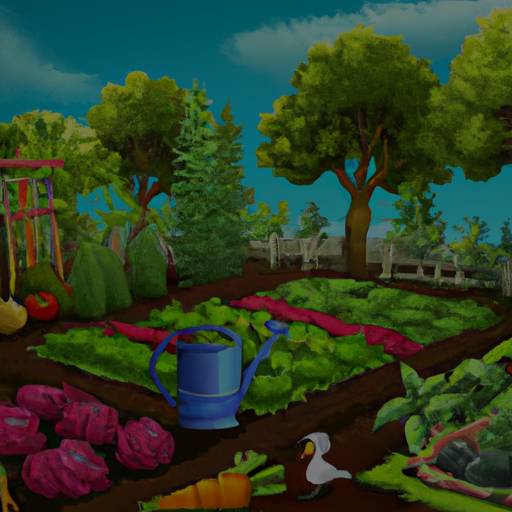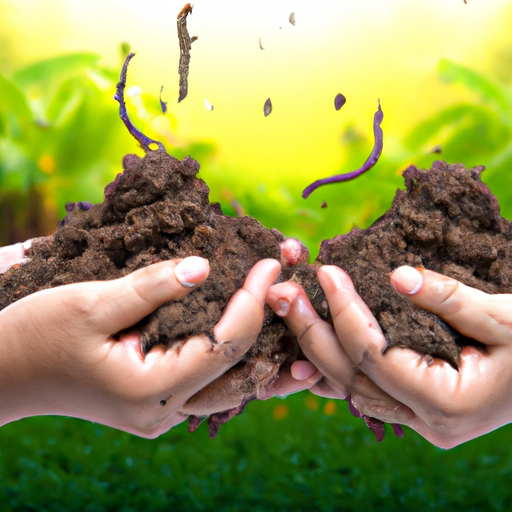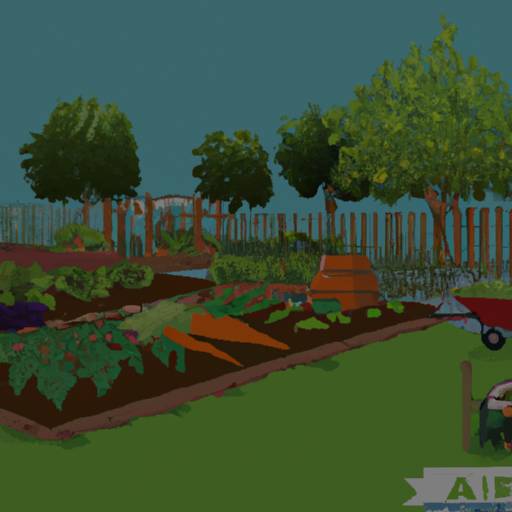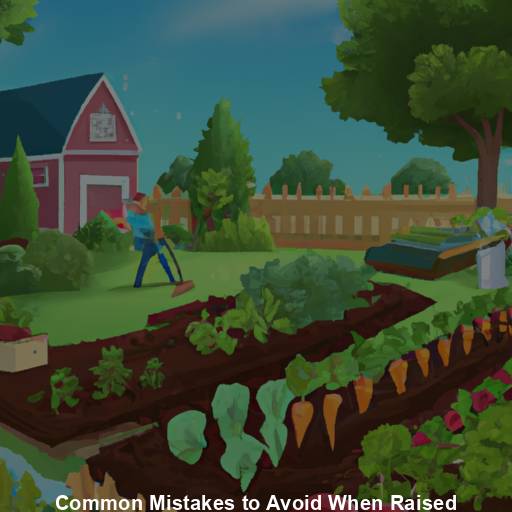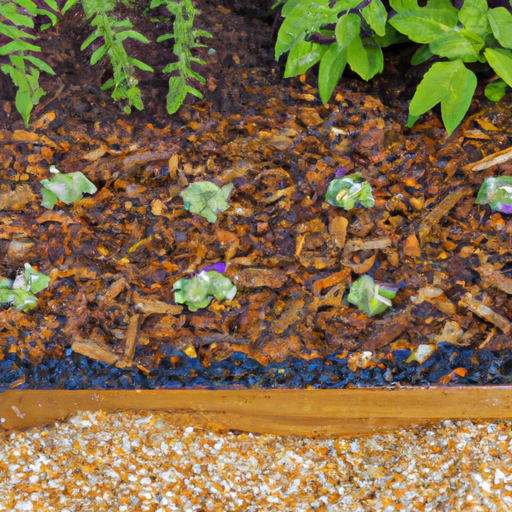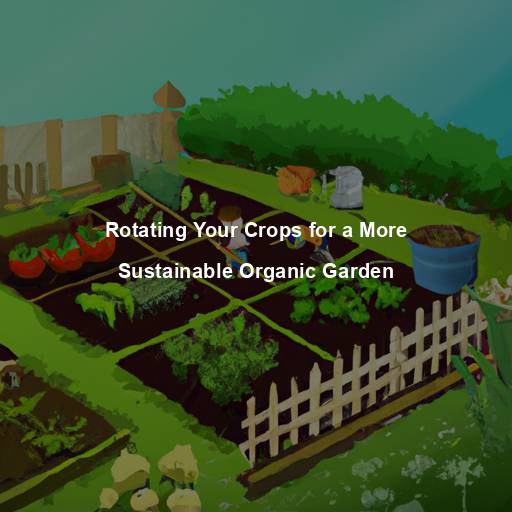Composting is a great way to reduce waste and improve soil quality in your garden. However, it’s important to follow certain dos and don’ts to ensure that you are composting effectively and safely.
As a Master Gardener with years of experience in composting, I have seen firsthand the benefits of proper composting techniques. In this article, I will guide you through the essential dos and don’ts of composting.
Whether you’re new to composting or looking to brush up on your skills, these tips will help you create nutrient-rich soil for healthy plants while minimizing negative impacts on the environment.
So grab a pitchfork and let’s get started!
Selecting The Right Materials For Composting
Composting is like a delicate dance, with the right mix of materials being key to creating rich compost.
When selecting materials for your composting container, it’s important to choose items that are high in nitrogen and carbon, such as vegetable scraps and dry leaves.
Avoid adding meat or dairy products which can attract pests and slow down the decomposition process.
If you’re experiencing issues with your compost pile, consider troubleshooting tips such as adjusting the moisture levels or turning the pile more frequently.
With careful consideration of what goes into your compost bin, you’ll be on your way to producing nutrient-rich soil for your garden without any harm to the environment!
Maintaining The Proper Moisture Level
Maintaining the proper moisture level is crucial when it comes to composting techniques: balancing moisture, troubleshooting odors. Too much water can lead to a slimy mess that smells bad, while too little water will slow down decomposition. The ideal moisture level should be similar to a damp sponge – not dripping wet but still able to release moisture when squeezed.
To maintain proper moisture levels in your compost pile, consider these five tips:
– Monitor rainfall and adjust watering accordingly.
– Cover your compost bin with a lid or tarp during heavy rainstorms.
– Use kitchen scraps and other moist materials sparingly if you notice your pile is already too wet.
– Add dry leaves or shredded newspaper to absorb excess moisture.
– Turn your compost regularly to mix in any areas that may be too dry or too wet.
By following these simple steps, you’ll create an optimal environment for microbes and other organisms to break down organic matter efficiently without producing unpleasant odors. Remember that consistent monitoring of your compost’s moisture content is key to maintaining healthy decomposition rates over time.
Keeping track of the right balance between air circulation and moisture levels means better results from all types of waste material thrown into the compost bin.
Turning Your Compost Regularly
Now that you know how to maintain the proper moisture level in your compost pile, it’s time to talk about turning it regularly.
This step is crucial in keeping your compost healthy and odor-free. Turning helps aerate your pile which allows oxygen to circulate throughout, promoting beneficial microbial activity.
The benefits of turning compost are numerous; not only does it speed up the decomposition process but also reduces unpleasant odors, prevents pests from nesting inside, and ensures a uniform distribution of decomposed materials.
Depending on the size of your pile and the weather conditions, you may need to turn it anywhere from once every two weeks to once a month. Just make sure that when you do turn it, you mix together any clumps or chunks of matter while breaking them down into smaller pieces for faster decomposition.
Remember that maintaining adequate air flow is essential for successful composting as well as avoiding anaerobic breakdowns that can create foul smells and harmful gases. With regular turning and attention paid to providing plenty of air circulation, your compost will transform into rich soil amendment full of nutrients for your garden plants!
Avoiding Certain Items In Your Compost Pile
As a Master Gardener, it’s important to know what items you should never add to your compost pile.
While meat scraps may seem like natural choices for composting, they can actually attract unwanted pests and create unpleasant odors in your yard.
Additionally, synthetic fabrics such as polyester or nylon are not biodegradable and can take years to break down in the soil.
On the other hand, citrus peels and eggshells make great additions to your compost pile due to their high nutrient content. They help balance the pH level of your soil while providing essential minerals that plants need to thrive.
Remember, always be mindful of what you’re adding to your compost pile and avoid any non-biodegradable materials or potentially harmful substances.
Using Your Compost To Improve Soil Quality
Now that you know what items to avoid adding to your compost pile, let’s talk about how you can use the finished product to improve soil quality. Compost is a wonderful addition to any garden as it adds nutrients and improves soil structure, making it easier for plants to grow.
One way to utilize your compost is by creating ‘compost tea’, which is essentially water infused with compost that can be used as a liquid fertilizer for plants. Another great option is vermicomposting benefits, where worms are added to a bin along with food scraps and bedding material in order to create nutrient-rich worm castings.
When using your compost, keep in mind that not all plants require the same amount of nutrients – some may need less while others may need more. Additionally, be sure to mix your compost into the soil thoroughly so that it doesn’t form clumps or pockets within the soil. Remember, healthy soil equals healthy plants!
– Mix 1 part compost with 2 parts potting soil when planting potted plants.
– Spread an inch layer of compost over existing garden beds before planting new crops.
– Use compost tea as a foliar spray on leaves every two weeks during growing season.
– Add vermicomposting casting around seedlings at time of transplanting.
– Incorporate matured compost into lawns twice a year in spring and fall.
Frequently Asked Questions
How Long Does It Take For Compost To Be Ready For Use?
Composting timeframe is an important consideration for every gardener. The composting process takes time, but the results are always worth it.
Typically, it takes between three to six months for compost to be ready for use, depending on how well you manage your pile. During this time, bacteria and other microorganisms break down organic matter into a nutrient-rich soil amendment that can be added to garden beds or used as potting mix.
To speed up the process, turn your compost regularly and ensure it stays moist enough without becoming waterlogged. Remember that patience is key when it comes to composting – allow nature to do its work, and soon enough you’ll have a healthy supply of homemade fertilizer at your disposal!
Can Meat And Dairy Products Be Composted?
Meat and dairy products can be composted, but it is important to do so carefully.
These items should not make up the bulk of your compost pile, as they can attract pests and create unpleasant odors.
Instead, use them sparingly and mix with other organic materials such as leaves or grass clippings.
It is also recommended to avoid adding meat or dairy that has been cooked with oils or sauces, which can hinder decomposition.
With proper attention to ratios and balance in your composting efforts, you can successfully incorporate these items into your overall plan for creating healthy soil for your garden.
Can Composting Attract Pests?
Managing pests and preventing odors are two critical aspects of composting.
While composting is an excellent way to reduce waste and create nutrient-rich soil for your garden, it can also attract unwanted visitors like rodents, flies, and other insects.
To manage pests, avoid adding meat, dairy products, or fatty foods to the compost pile as they tend to attract rats and mice.
Instead, stick to vegetable scraps, fruit peels, leaves, and grass clippings.
Another essential tip is to cover the compost with a layer of browns such as dry leaves or shredded paper to prevent odors from escaping and attracting flies.
By following these simple tips, you can enjoy a healthy and thriving compost pile without inviting any pesky visitors into your backyard.
How Much Should I Water My Compost Pile?
Watering frequency is an essential factor in maintaining the ideal moisture levels of your compost pile.
Too much water can lead to a slimy and anaerobic environment, while too little can dry out your materials, slowing down decomposition.
A good rule of thumb is to keep your compost as moist as a wrung-out sponge.
If you notice that your pile has become too dry or wet, adjust accordingly by adding more brown material such as leaves or shredded paper for dryness or watering it with a hose for excess moisture.
Remember that maintaining proper moisture levels will help speed up the process of breaking down organic matter into nutrient-rich soil amendment!
Can I Add Weeds To My Compost Pile?
Adding weeds to your compost pile can be beneficial if done correctly.
Composting weeds follows the dos and don’ts of composting, meaning you should avoid adding any weed that has gone to seed or has been treated with herbicides.
However, weeds that have not yet produced seeds are great sources of nitrogen for your compost pile.
They break down quickly and help create a nutrient-rich soil amendment in just a few months.
Remember to chop up any large pieces of weeds before adding them to the pile so they decompose more quickly.
By following these guidelines, you’ll be able to turn what was once considered a nuisance into a valuable addition to your garden’s soil health!
Conclusion
In conclusion, composting can be a rewarding and environmentally friendly way to dispose of organic waste. However, it is important to follow the dos and don’ts to ensure success.
While some may find the process daunting, fear not dear gardener! With proper care and attention, your compost pile will thrive.
Remember to avoid adding meat and dairy products as they can attract unwanted visitors. Also, keep in mind that watering too much or too little can affect the decomposition process. And while weeds may seem like a good addition, make sure they have not gone to seed before adding them.
By following these guidelines and seeking advice from fellow gardeners or Master Gardeners alike, you’ll soon be on your way to producing nutrient-rich soil for all of your gardening needs.
